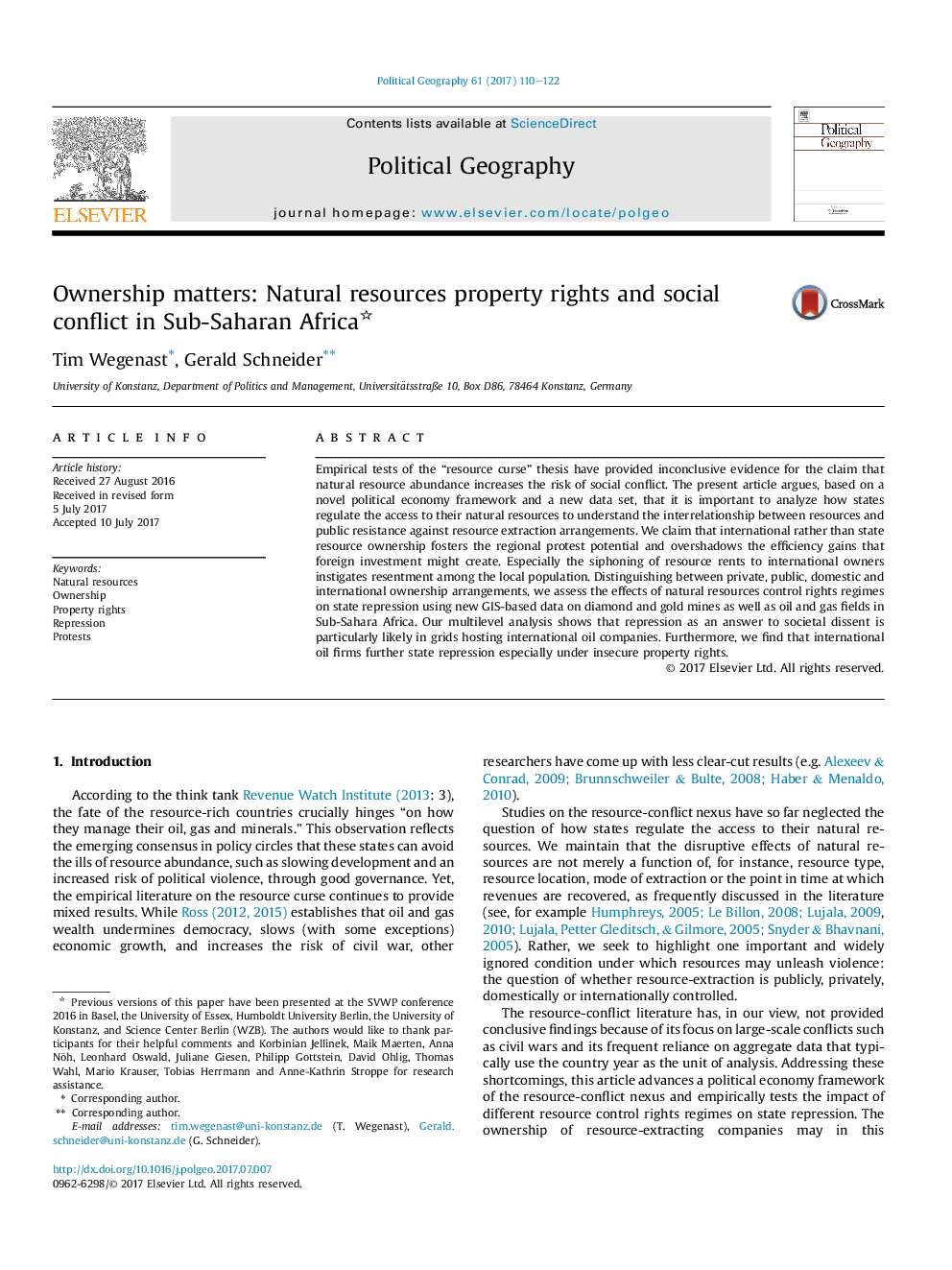| Article ID | Journal | Published Year | Pages | File Type |
|---|---|---|---|---|
| 5118433 | Political Geography | 2017 | 13 Pages |
â¢The resource-conflict nexus is contingent on natural resources property rights.â¢Internationally-controlled oil production promotes state repression.â¢State-controlled resource production is not associated with more repression.â¢International oil companies promote repression under insecure property rights.
Empirical tests of the “resource curse” thesis have provided inconclusive evidence for the claim that natural resource abundance increases the risk of social conflict. The present article argues, based on a novel political economy framework and a new data set, that it is important to analyze how states regulate the access to their natural resources to understand the interrelationship between resources and public resistance against resource extraction arrangements. We claim that international rather than state resource ownership fosters the regional protest potential and overshadows the efficiency gains that foreign investment might create. Especially the siphoning of resource rents to international owners instigates resentment among the local population. Distinguishing between private, public, domestic and international ownership arrangements, we assess the effects of natural resources control rights regimes on state repression using new GIS-based data on diamond and gold mines as well as oil and gas fields in Sub-Sahara Africa. Our multilevel analysis shows that repression as an answer to societal dissent is particularly likely in grids hosting international oil companies. Furthermore, we find that international oil firms further state repression especially under insecure property rights.
